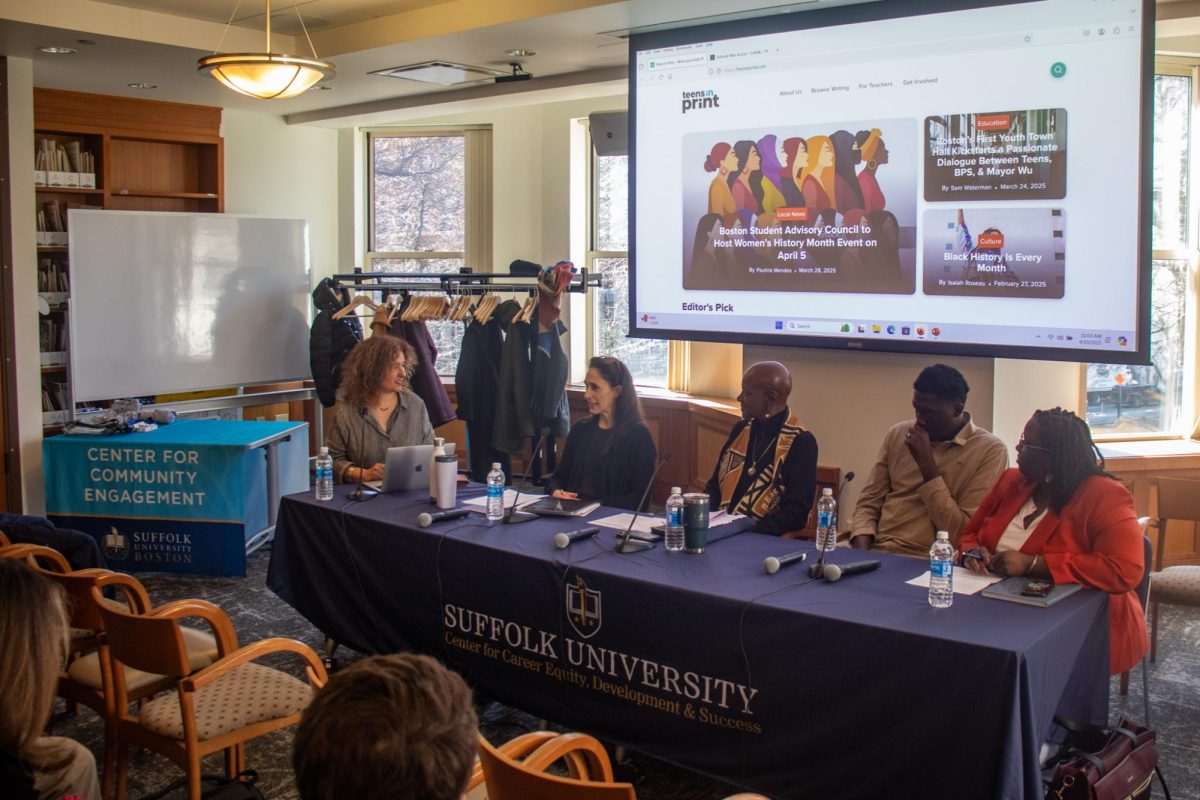Article by: Derek Anderson
The present and future survival of Print Journalism was discussed at a Ford Hall Forum event hosted at the Suffolk University Law School Thursday night.
The night began with an introduction by Alasdair Roberts, a professor at Suffolk Law, who summarized the discussion, and introduced the speakers. The guest of honor, Paul Starr, a professor of communication and public affairs at Princeton University, spoke the longest on the crisis affecting America as well as the rest of the world.
“Journalism produces a public good,” said Starr, explaining the importance of the newspaper. Newspapers have been the chief engine of journalism reporting, providing the public with the knowledge of current events, politics, sports and international news, according to Starr. “Newspapers, for a long time have been virtually irreplaceable.”
The newspaper’s strong root in society has nearly made the public take the news for granted. With televised news, as well as free radio, and now the massive influence of the internet; the world has pushed newspapers aside, said Starr. Because of the internet, people are being exposed to less news. The convenience of online journalism reduces what readers are exposed to. Online readers can now jump to whatever articles they please; they are no longer exposed to the articles they would not normally read.
Starr said that this lack of exposure leads to corruption. He mentioned his home state of New Jersey where there has been a longtime news deficit. Because of the surrounding states, New Jersey has received news from New York and Pennsylvania rather than its own state. This leads to inner corruption of politics with its inadequate news coverage.
“Yes, there are new developments taking place online,” said Starr, “but they do not compensate, they do not offset what is being lost in traditional news media.”
After Starr spoke, Martin Baron, editor of the Boston Globe, spoke about the “dying breed of newspapers”. He agreed with almost everything Starr said, except his views of subsidies for newspapers.
“I don’t want [subsidies], I would like to stay away from them, I think they compromise us in big ways,” said Baron. Subsidies provide the government with partial control of newspaper coverage’s.
Baron said that newspapers have a much larger importance in the media than the public recognizes. Baron’s point of resources explained that newspapers take time to expose and present the public with media that otherwise cannot be obtained. Online sources, as well as the government, do not have the dedication to stories that need to be reported. Baron used the example of the Catholic Church sex scandal. The scandal cost the paper over $1 million to investigate and cover. These are the type of stories Baron said that would have not been covered by any other type of media.
After Baron, Dan Kennedy, an assistant professor at Northeastern University, spoke his views on the future of newspapers. He felt that Starr had a “pessimistic,” view on the future of newspapers. However he believed that Baron was correct in saying that the public cannot make up what is lost in print journalism if it dies. Kennedy, a supporter of online news, felt that online sites would preserve journalism and keep it alive.
“Online sites require people to search them out. I don’t think it is very likely they will able to create this broad public that newspapers have had,” said Starr. “The really big difference is this capacity to create a broad public that crosses political lines, that reaches deep into the community.”













